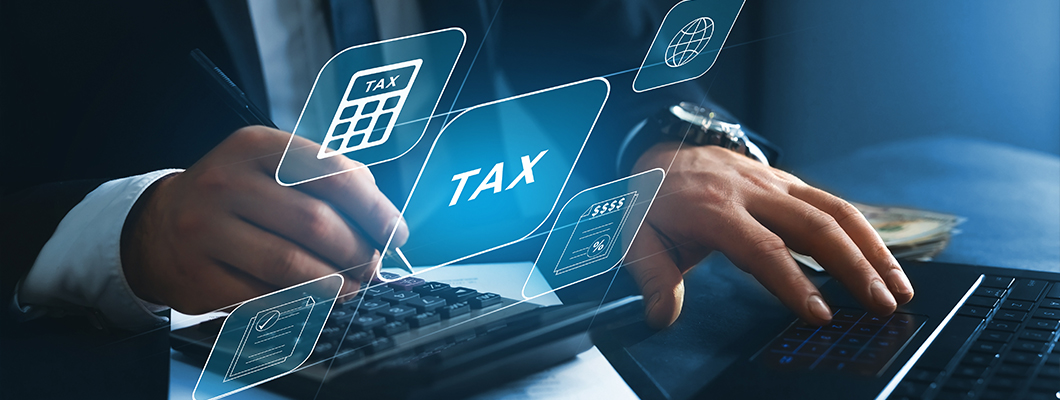
Current Account: How to use it for tax payments?
Posted on Wednesday, April 26th, 2023 | By Indusind Bank
Managing taxes can be a complex and time-consuming process, especially for business owners and entrepreneurs. It can be challenging to keep track of all the payments, deadlines, and tax-related paperwork. One way to simplify your tax management is to use a current account for your tax payments.
A current account is a type of bank account that is designed for businesses and professionals. It provides various features, including cheque books, overdraft facilities, and online banking, that can make managing your finances easier. Here is the step by step guide on how you can use a current account for your tax payments:
Step 1: Open a Current Account
The first step is to open a current account with a bank that offers the services and features that you need. You can compare the options from different banks and select the one that meets your requirements.
IndusInd Bank presents an array of current accounts that are customized to meet the specific banking requirements of your enterprise. With industry-tailored accounts, seamless account opening process, individualized account numbers, pre-sanctioned loan access, hassle-free banking facilities, and easily navigable digital banking, IndusInd Bank is the perfect financial partner for your business.
Salient Features of IndusInd Bank Current Accounts:
- Simplified and swift accounts opening procedure with minimal documentation for your convenience
- Flexibility to personalize your accounts number with the feature of ‘My Account, My Number.’
- Prompt access to pre-approved loans for any unforeseen capital exigencies.
- Handy on-call cheque/cash collection and delivery facility.
- User-friendly mobile and online banking platform.
- Fully digitalized current accounts opening process that includes video KYC.
Step 2: Link Your PAN and GSTIN
Once you have opened the current account, link your PAN (Permanent Account Number) and GSTIN (Goods and Services Tax Identification Number) with the bank. This will enable you to make tax payments directly from your current account.
Step 3: Set Up Auto-Payments
Most banks offer the facility of auto-payments, which allows you to schedule your tax payments in advance. You can set up auto-payments for your GST, TDS (Tax Deducted at Source), and other tax payments to ensure that you never miss a deadline.
Step 4: Track Your Payments
It is essential to keep track of your tax payments and receipts to avoid any discrepancies. Open a current account with IndusInd Bank to monitor your transactions on the go and ensure that your tax payments are credited to the respective authorities.
Step 5: Use Cheque Books
You can also use cheque books provided with your current account to make tax payments. Make sure to fill out the details correctly and sign the cheque before submitting it to the respective tax authority.
Step 6: Take Advantage of Overdraft Facility
If you face a cash flow issue and cannot make your tax payments on time, you can use the overdraft facility provided with your current account. The overdraft facility on IndusInd Bank Current Accounts comes with very nominal interest charges so use it without hesitating.
Step 7: Use Mobile Banking Apps
IndusInd Bank Current Account comes with mobile banking app Indus Merchant Solutions that allows you to manage your account from anywhere, at any time. You can use these apps to check your account balance, send & collect payments, check settlement statement and monitor your transactions in just a few clicks.
Conclusion:
In conclusion, using a current account for your tax payments can simplify your tax management and help you stay on top of your finances. Make sure to open IndusInd Bank current account to enjoy the features & services that you need and follow the steps outlined above to make your tax payments hassle-free.
Disclaimer: The information provided in this article is generic in nature and for informational purposes only. It is not a substitute for specific advice in your own circumstances. Hence, you are advised to consult your financial advisor before making any financial decision. IndusInd Bank Limited (IBL) does not influence the views of the author in any way. IBL and the author shall not be responsible for any direct/indirect loss or liability incurred by the reader for taking any financial decisions based on the contents and information.



 Offers
Offers Rates
Rates Debit Card Related
Debit Card Related Credit Card Related
Credit Card Related Manage Mandate(s)
Manage Mandate(s) Get Mini Statement
Get Mini Statement
 categories
categories Bloggers
Bloggers Blog collection
Blog collection Press Release
Press Release


